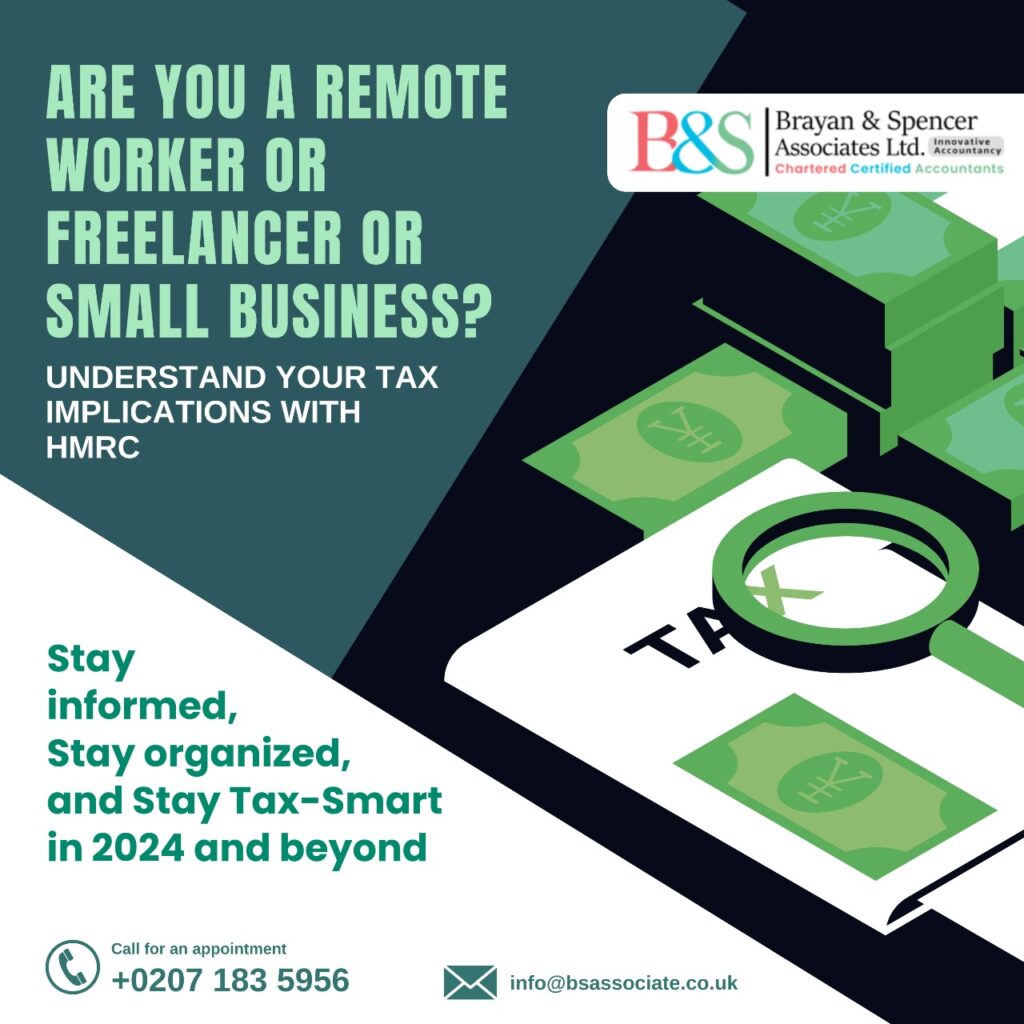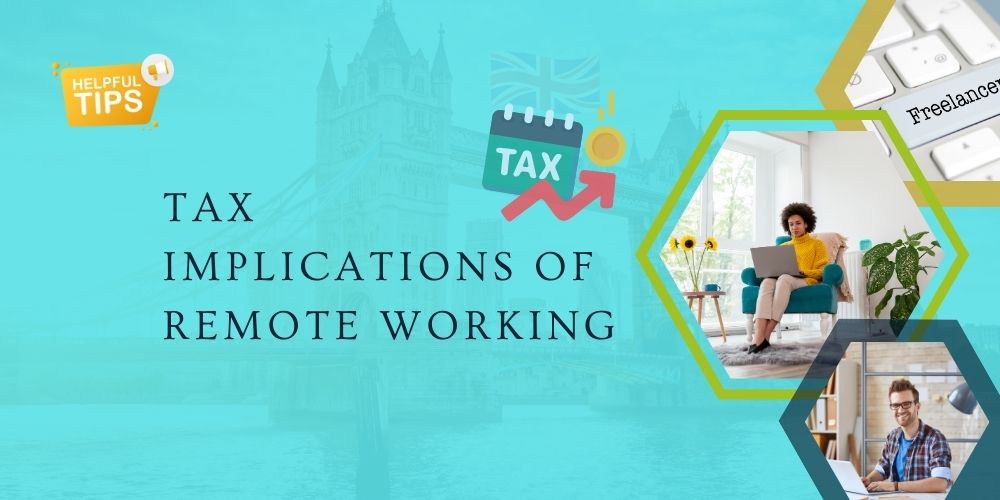In today’s digital age, remote working has become the norm for many Londoners. Whether you’re a seasoned freelancer or a small business owner running operations online, understanding the tax implications is crucial for both employers and employees. This guide aims to simplify the complex world of taxes for self-employed individuals, freelancers, and small online businesses in London, providing practical tips and insights for a smoother tax journey.
Employment Status: Are You Self-Employed?
The first step in understanding your tax responsibilities is determining your employment status. If you’re a freelancer or a small business owner, you’re likely considered self-employed by HMRC. This means you’re responsible for managing your taxes, including filing a Self Assessment tax return and paying Income Tax and National Insurance contributions.
Tax Residency: Where Do You Pay Taxes?
As a London resident, you’re generally considered a UK tax resident. This means you’re required to pay UK Income Tax on your worldwide earnings, regardless of where you work. However, if you plan to work remotely from another country for an extended period, it’s essential to check the UK’s double taxation treaties with that country. These treaties can prevent you from being taxed twice on the same income, easing your tax burden.
Record Keeping: The Key to Tax Compliance
Maintaining accurate records is crucial for self-employed individuals. Keep detailed records of your income, including client invoices and project fees, as well as your expenses such as office supplies, internet bills, and phone costs. These records are essential for calculating your taxable profit and claiming allowable business expenses, which can significantly reduce your tax bill.
Understanding Allowable Expenses
Not all expenses related to your home office qualify for tax relief. Allowable expenses are those directly related to running your business. These may include:
- Rent for a dedicated workspace in your home (a portion based on the dedicated space).
- Utilities bills (internet, phone) – a portion based on business usage.
- Office equipment (computers, printers, stationery).
- Software subscriptions used for business purposes.
To claim these expenses, ensure you can demonstrate a clear distinction between personal and business use. Keeping receipts and invoices organized is key to substantiating your claims during tax assessments.
Travel Expenses: What’s Allowable?
While commuting between your home office and client meetings isn’t considered an allowable expense, travel to temporary workplaces outside your home, such as co-working spaces, might qualify. It’s advisable to consult with a tax professional or accountant for specific advice on travel expenses and their tax implications.
Paying Your Taxes: A Self-Employed Responsibility
Self-employed individuals are responsible for making quarterly payments on account towards their Income Tax and National Insurance. These payments are based on estimated tax liabilities for the year. Additionally, you’ll need to file your Self Assessment tax return by October 31st following the tax year (which runs from April 6th of the previous year to April 5th of the current year).
Making Tax Digital (MTD): Changes in Tax Compliance
From April 2024, most self-employed individuals with a trading income exceeding £10,000 will need to keep their business records digitally and submit their Self Assessment tax return using MTD-compatible software. This government initiative aims to streamline tax processes for the self-employed, promoting accuracy and efficiency in tax reporting.
Seeking Professional Help: The Value of Expert Advice
Navigating the intricacies of the tax system can be daunting, especially for new freelancers or small business owners. Consider seeking help from a qualified accountant specializing in self-employed taxes. They can provide tailored advice on claiming allowable expenses, optimizing your tax position, and ensuring compliance with HMRC regulations, giving you peace of mind and saving you time and effort.
Additional Considerations: VAT and National Insurance
For freelancers and small business owners, there are additional tax considerations to keep in mind:
- VAT (Value Added Tax): If your annual turnover exceeds the VAT registration threshold (currently £85,000), you’ll need to register for VAT and collect it on your services. VAT rules and rates may vary depending on your business activities, so it’s essential to stay informed.
- National Insurance: Self-employed individuals are required to pay Class 2 and Class 4 National Insurance contributions. The rates and thresholds for National Insurance contributions can change annually, so staying updated with HMRC guidelines is crucial to meeting your tax obligations.
In conclusion, understanding the tax implications of remote working is essential for London freelancers and small online businesses. By knowing your employment status, maintaining meticulous records, claiming allowable expenses, and seeking professional advice when needed, you can navigate the tax landscape with confidence and ensure compliance with HMRC regulations. Stay informed, stay organized, and stay tax-smart in 2024 and beyond.

Let Brayan & Spencer Associates guide you through tax complexities. Get expert advice for London freelancers and small businesses.
Call us at 02071835956

